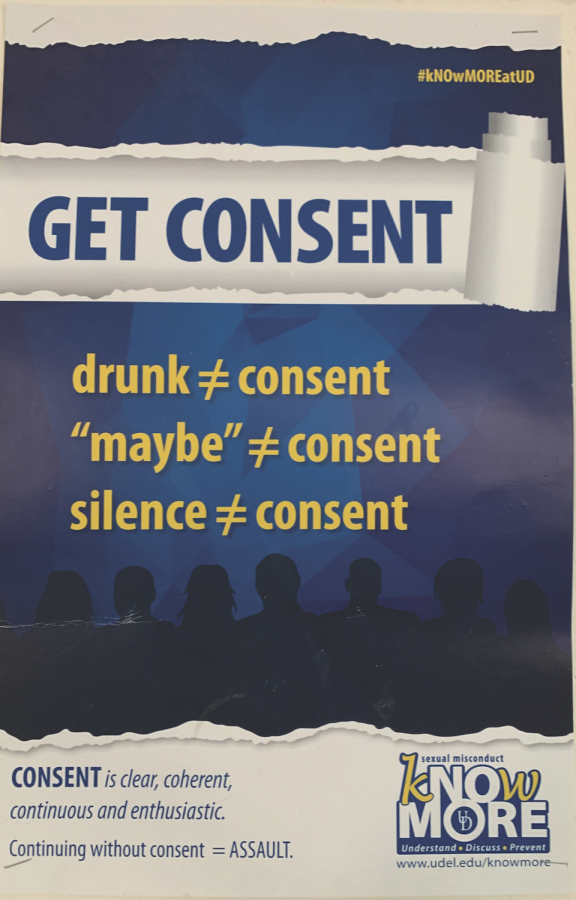‘Yes means yes’
The importance of using our knowledge of consent
Photo Zach Rever
Consent sign hanging up in Room 140
With 11.2 percent of students sexually assaulted at college each year according to RAINN (the Rape, Abuse, and Incest National Network), the WHS health program emphasizes the importance of giving and receiving sexual consent. There is typically one unit on sexual assault in health each year, with emphasis placed on what students can do to prevent themselves from becoming a victim of sexual assault. To end their health education and prepare for the years ahead, seniors watch clips of The Hunting Ground, a 2015 documentary which bluntly exposes the harsh realities of sexual assaults on college campuses.
WHS Health Teacher Susan Kolesar makes sure to emphasize the importance of giving and receiving consent: “I say, ‘Listen guys, this is one of the most adult conversations that you’re going to have, but it’s important to establish what consent looks and sounds like.’”
While WHS students learned about consent in health classes, there is a very good chance our future peers, roommates and classmates from elsewhere have not. Consent education in public schools has been wildly under discussed for years, due to emphasis on abstinence-only education.
According to the Kaiser Family Foundation, 26 states require teachers to stress abstinence to students, and in 2015, Congress increased federal funding for programs that endorse abstinence to $90 million, according to The Washington Post.
Students are arriving to college with differing definitions of consent based on their education, contributing to the distressingly high number of assaults on campuses. When The Huffington Post interviewed college freshmen in 2016, the majority said that a “full explanation” of consent was not given to them until college and that the previous definitions given were “wishy-washy.”
Only eight states require schools to include consent in their sex education programs, according to CNN. This is a dangerous problem for students going to college, as they may encounter fellow students who have no idea about the importance of safe sex, and, most importantly, what defines consent.
“I teach about affirmative consent, meaning it has to be a ‘yes’, not the absence of a ‘no’, and it has to be from a person of age who is not affected by substances,” said Kolesar. “[The person] also has to understand what they are consenting to.”
This puts WHS students with comprehensive knowledge about consent in an awkward, but important teaching role. For those of us attending colleges with student bodies primarily comprised of people from states with little to no consent education or, attending religious universities that tend to have less-than-adequate sexual harassment/assault policies, it’s vital that we, educated individuals, make sure we all have a clear definition of consent, so that we can impart this knowledge onto others.

